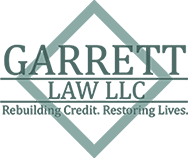Know Your Bankruptcy Options
Living with a large amount of debt can be overwhelming and stressful — especially if you are unsure how you are going to get yourself out from underneath. No matter the reasons why you have fallen into debt (mounting medical bills, exorbitant credit card balances, and job layoffs), you aren’t alone. Every year, thousands of people file for bankruptcy to get a fresh financial start. If you are considering bankruptcy to help you achieve financial freedom, it’s crucial to understand how each bankruptcy chapter works to make the right choice.
Chapter 7 Bankruptcy
Also known as “straight” or “liquidation” bankruptcy, Chapter 7 is the quickest and most common form of bankruptcy. If you have unsecured debts (loans that are not backed by collateral), then Chapter 7 may be a viable option. Under chapter 7, the following debts are dischargeable:
- Credit card debt (this could exclude charges made in the last 90 days or cash advances within the last year)
- Deficiencies on repossession
- Medical debt
- Back rent from an old lease
- Civil judgments
- Personal unsecured debts
- Bounced checks (you may be required to pay face value and collection fee for bad checks within the last five years to avoid criminal prosecution).
To be eligible for Chapter 7 bankruptcy, you must pass the “means test.” The means test is designed to compare your income to your debts to determine if you have enough money to pay off your debts. If you do not pass the means test, then you may be eligible for Chapter 13 bankruptcy.
Chapter 13 Bankruptcy
Chapter 13 bankruptcy is a little more complicated. Also known as reorganization bankruptcy, Chapter 13 allows filers to restructure their debt into a 3 to 5 year payment plan. The benefit of Chapter 13 bankruptcy is that you get to discharge some debts while catching up on payments. This bankruptcy option can also help you keep your property. Not to mention all upfront filing and attorney fees are rolled into your bankruptcy repayment plan and your petition can be filed as soon as your paperwork is received.
You may be able to benefit from Chapter 13 bankruptcy if:
- You are not eligible to apply for Chapter 7 bankruptcy.
- You want to protect your home from foreclosure.
- You want to keep certain assets that would otherwise be liquidated in Chapter 7 bankruptcy.
- You want to defer tax debts.
- You want to defer student loans.
When You Need a Topeka Bankruptcy Lawyer
If you have an overwhelming amount of debt, bankruptcy could be the answer to financial freedom. For over ten years, Garrett Law LLC has helped hundreds of clients attain financial freedom through bankruptcy. We are here to help you through you every step. Contact us today to schedule a free phone or virtual consultation at (888) 253-4526.

